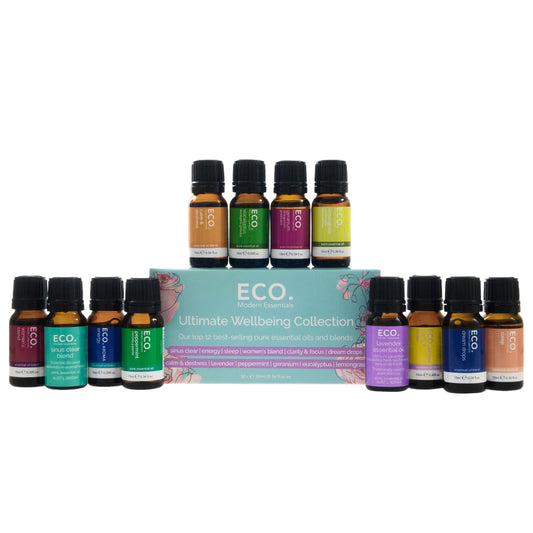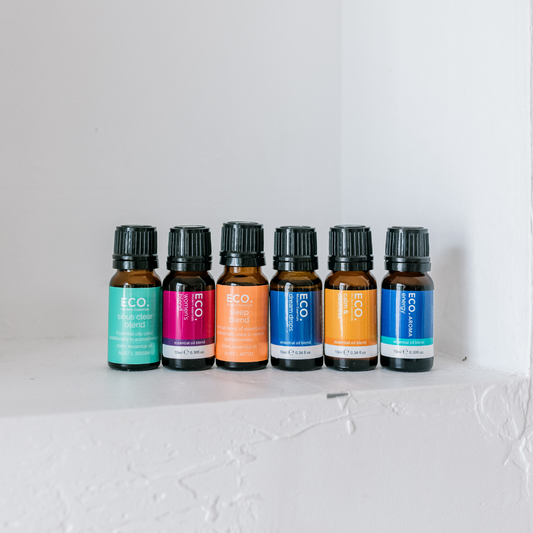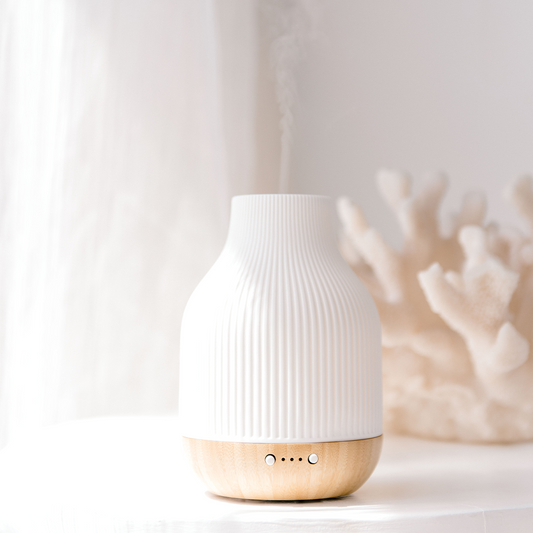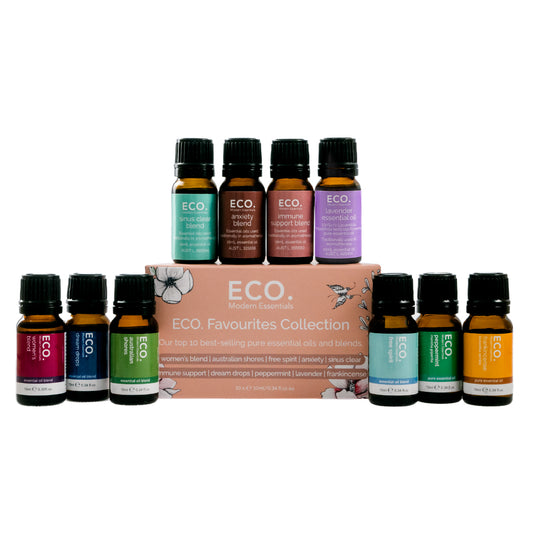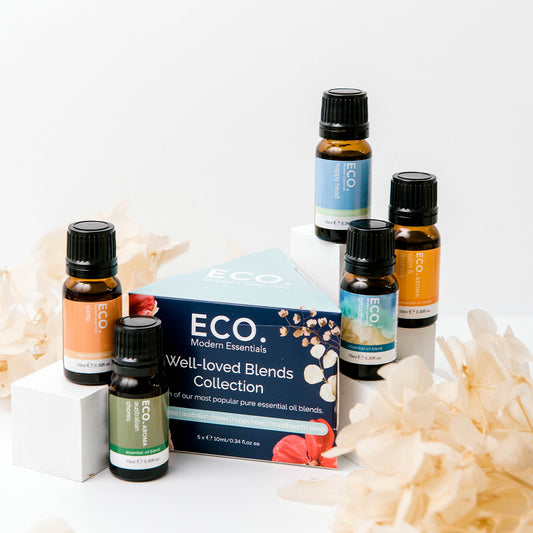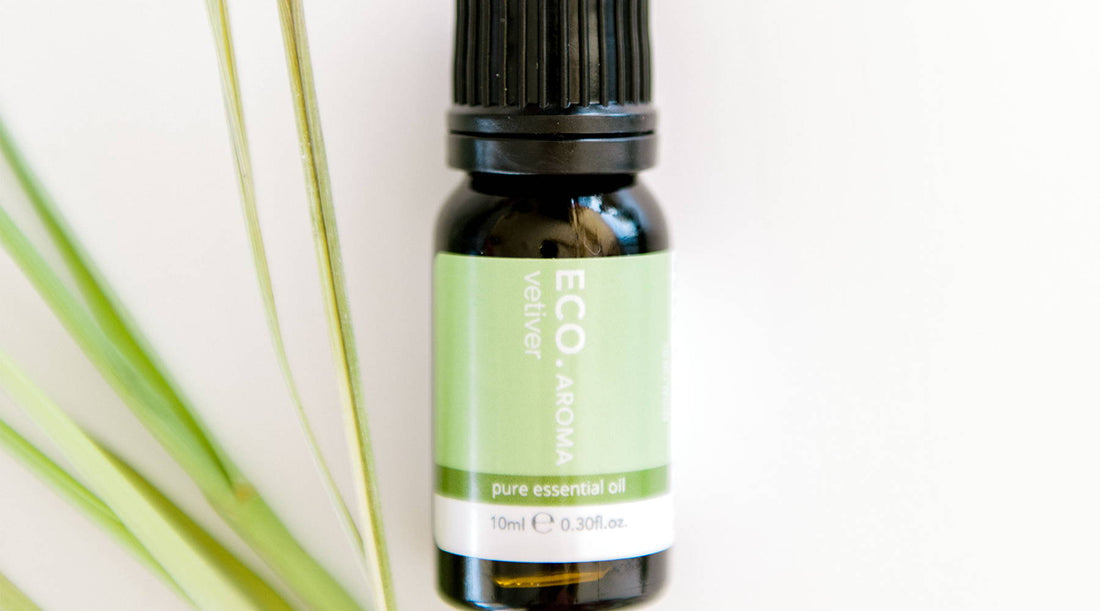
Benefits & Uses of Vetiver Essential Oil
Vetiver essential oil is known as the oil of tranquility. Take one deep inhalation to understand why. The earthy aroma transports us to a grounded place that is serene and quiet. Like the tenacious roots of the Vetiver plant, this essential oil reconnects us to our own strong roots where we can receive emotional healing and guidance. Vetiver helps us rest and recover when life has become overtaxing.
Where is Vetiver essential oil from?
Vetiver grows wildly in many parts of India and Sri Lanka. It is also cultivated in Malaysia, Haiti, Réunion and Indonesia. Our Vetiveria zizanoides (Chrysopogon zizanioides) roots (Vetiver) oil is sourced from Indonesia.
How is Vetiver essential oil made?
Vetiver essential oil is extracted from the roots of the plant by steam distillation. The roots are difficult to dig up. Ideally, the plant is about 18 to 24 months old before being harvested. The roots are washed and dried first before being chopped up and steeped in water. Steam rises through the vetiver roots causing the valuable aromatic compounds to be vaporised. The steam is cooled in a tube causing it to return to liquid form. The liquid is a mixture of essential oil and aromatic water or hydrosol. Once the liquid is collected, the essential oil floats to the top and is siphoned off ready for bottling. Vetiver essential oil is thick and usually a reddish-brown colour.
What does Vetiver look like?
Vetiver is a member of a group of fragrant grasses that are used in aromatherapy including Lemongrass, Citronella and Palmarosa. The grass grows in clumps reaching about 2 meters in height. Vetiver sinks its roots quickly and deeply into the earth, they are spongy and slender. The grass is thin and tough, and the plant produces flowers that range from brown to purple. Vetiver grows in a tropical climate and can tolerate drought and long periods of flooding.
What does Vetiver essential oil smell like?
Vetiver has a complex aroma that strikes us as deep, heavy, and bold. After a few inhalations we notice other tones, a resin-like sweetness that is dry and an almost medicinal bitter note, that pierces through the rest. Overall, the fragrance is spicy and earthy with hints of smoke.
History of Vetiver
Vetiver has woven its way into many aspects of life and culture. Vetiver is mentioned in the Bhagavad Gita, a revered Hindu text. The oil was used to massage brides to help them on their special day. Many religious communities use the fragrance to enhance spirituality and a close connection to the divine.
The cooling properties of Vetiver have long been valued in the Ayurvedic and Traditional Chinese Medicine traditions. The oil is added to many perfumes, especially for men, as a fragrance stabiliser and fixative.
The plant itself is woven into mats and window coverings that are sprayed with water on hot days. The cooling nature of Vetiver makes hot Summer days more pleasant. Fragrant fans made of dried Vetiver are reported to keep insects away.
Vetiver is also used in land management. The deep, strong roots prevent soil erosion and are thought to clean the land of pollutants. Because the plant is so dense, they are planted in rows to hold and direct flood waters away from growing fields and homes.
Benefits & uses of Vetiver essential oil:
1. Skin care - Vetiver is reported to improve skin health because of its action on connective tissues. Recommended for tired skin and to restore a firm tone, Vetiver may stimulate the skin to increase vitality. Vetiver may also be useful to treat acne and an oily complexion.
2. Muscle aches and pains - Vetiver has a mild warming action and can be a tonic for the nervous system. These properties make it useful to treat muscle pain, cramping, arthritis and to encourage muscle healing after exercise.
3. Women’s Health - The essential oil may help support a regular menstrual cycle and improve hormone-related health concerns during menopause due to changing hormone levels.
4. Immune support - Vetiver is thought to support the immune system. It could be beneficial during times of prolonged stress and exhaustion to support general health and resistance.
5. The oil of Tranquillity - The strong sedative and nerve tonic action of Vetiver is relaxing. Vetiver may be used during stressful situations, or for those with anxiety and depression. Vetiver can help promote sleep and improve insomnia. The essential oil is nurturing when you are exhausted from overworking or overwhelming life events.
How to use Vetiver essential oil
- Diffuser: Add 6-8 drops of Vetiver essential oil to a diffuser for a calm space and to help with sleep.
- Quick fix: A few deep inhalations from the bottle can help when you are feeling stressed, anxious and need to be grounded.
- Bath: Add 2-3 drops in a dispersant such as oil, to the bath to create a relaxing atmosphere while nourishing your skin.
- Massage: Use a 2.5% dilution; 50 drops in 100ml carrier oil.
- Face serum: Add 1 drop in 5mls carrier oil. Massage gently into face to treat blemishes and improve vitality.
- Hand or foot bath: Add 2 drops of Vetiver to a bowl of water. For treatment of general skin infection consider using warm water.
- Steam treatment (for face): Add 2 drops of essential oil to a bowl of steaming hot water. Place your face close to the bowl and cover the back of your head and bowl with a towel to trap the aromatic vapours. Caution due to risk of burns or scalding and keep eyes covered during treatment.
Blending with Vetiver essential oil
Vetiver has a bold fragrance. It is also a very thick essential oil which means that it evaporates more slowly than other essential oils. We only need a few drops in a blend and Vetiver’s sweet earthy aroma will linger on after the rest of the blend has drifted away. Vetiver blends well with other ‘loud’ essential oils such as: Basil, Bergamot, Black Pepper, Cinnamon, Clove Bud, Frankincense, Geranium, Ginger, Jasmine, Lavender, Orange, Palmarosa, Pine, Ylang Ylang. Vetiver essential oil could be substituted with Patchouli, Sandalwood or Cedarwood due to their similar fragrance profiles and deeply calming properties.
Vetiver essential oil safety
Vetiver is considered a safe essential oil that is non-irritating to the skin.





